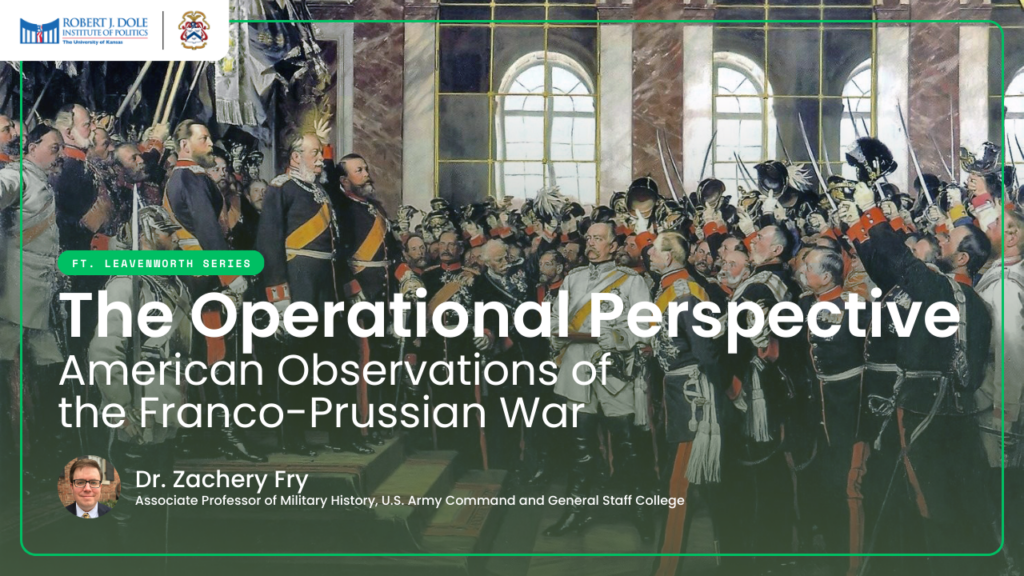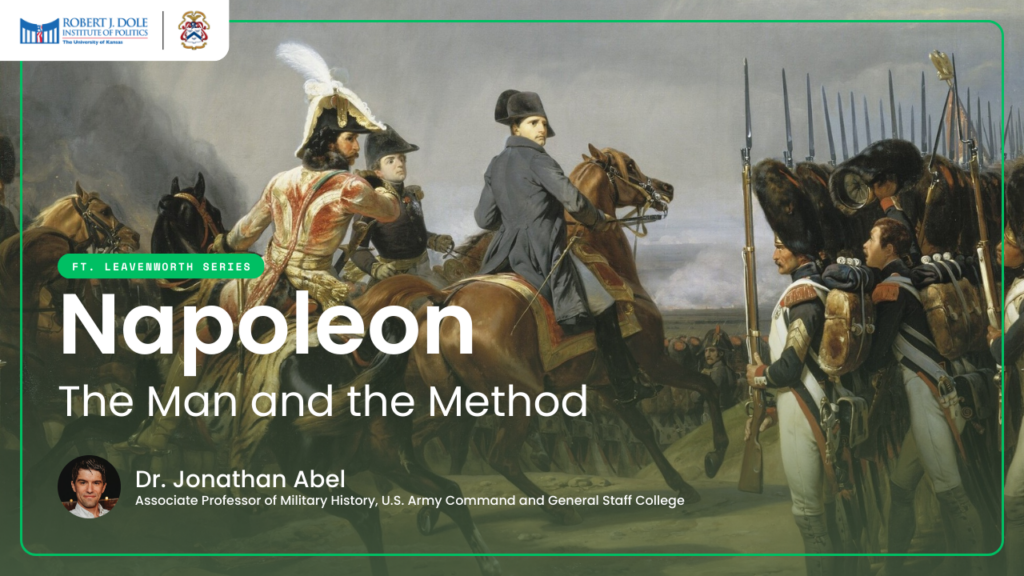
- This event has passed.
World Leaders in Wartime: Abraham Lincoln
November 6, 2024 @ 3:00 pm - 4:15 pm

Abraham Lincoln, often characterized as one of America’s preeminent war leaders, was a master politician who intuitively understood the political consequences of any decision. Yet on matters of strategy, arguably the most important responsibility of a wartime president, Lincoln deferred to his military commanders rather than exercise his authority as commander-in-chief. His strategy of deference nearly proved to be a strategy for defeat.
Harry S. Laver is a professor of military history at the U.S. Army Command and General Staff College, Fort Leavenworth, Kansas, who specializes in the American Civil War and World War II Europe. He is the author of A General Who Will Fight: The Leadership of Ulysses S. Grant (2013). His current book projects include Grant and His Generals: A Study of Military Command, and Ike and Tedder: A Study of Allied Command.
The Ft. Leavenworth Series is an annual roster of lectures focusing on significant historical events, usually with an emphasis on military history. Each lecture is presented by faculty from the United States Army Command and General Staff College in Ft. Leavenworth, Kansas. Established by General William Tecumseh Sherman in 1881, the CGSC is the graduate college for U.S. Army and sister service officers. The esteemed faculty and guests of the CGSC provide unique and captivating insights into the history of military conflict from the ancient to the modern ages at the Dole Institute of Politics.
The opinions expressed herein are those of the individual and do not necessarily represent the views of the U.S. Army Command and General Staff College or any other governmental agency.


